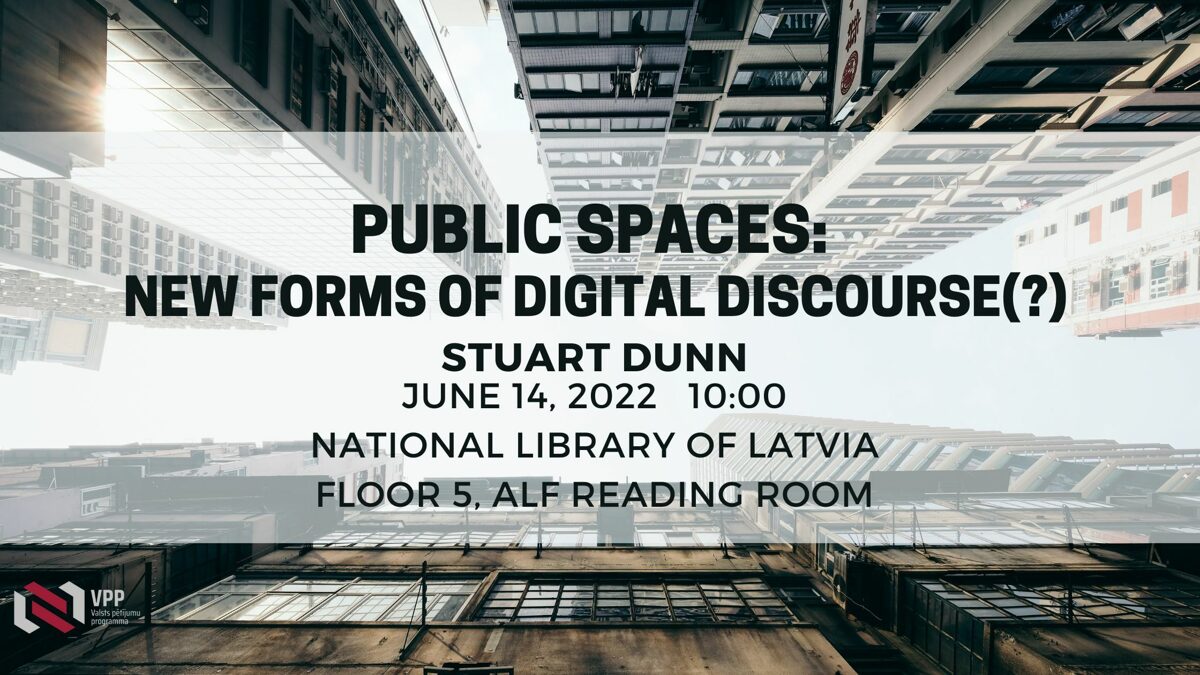Public spaces: new forms of digital discourse(?)

On 14 June, the seminar "Public spaces: new forms of digital discourse(?)" with Stuart Dunn will take place at the Institute of Literature, Folklore and Art of the University of Latvia, organized in cooperation with Riga Technical University.
Outline:
Public spaces: new forms of digital discourse(?)
Public spaces, especially but not exclusively in cities, have long been sites of protest, celebration, conflict and cohesion. The forms of social discourse they enable has a history of theorisation that is almost as long: from Jurgen Habermas to Henri Lefevbre and Marx, the idea of the public realm as a place where space is “socially constructed” is familiar to both digital humanists and urban planners.
In this seminar, we will consider what it means to “digitise” public spaces. The importance of this topic was bought into sharp relief in 2021 during the ‘Black Lives Matter” protests, some of which, in the UK at least, focused on public statuary and architecture which exemplified supposed “imperial” or “colonial” readings of history. These protests carried on in parallel in the digital realm: on Twitter and Facebook, on other social media and on multimedia content platforms. We will look at the Strand/Aldwych development programme in London as a case study.
In this seminar, we will explore what it means to “digitize” public spaces in this way. Before the seminar, you are invited to consider the following questions, and come prepared with some reflections on them:
- 1) What types of public spaces are there? How do we categorise and define them?
- 2) What happens in these spaces?
- 3) How are the events and processes which occur in them mirrored online?
- 4) What possibilities does the digital world hold for enabling creativity, practice and research derived from public spaces?
The Strand Aldwych website: https://strandaldwych.org
Stuart Dunn is Professor of Spatial Humanities at King's College London. He started out as an archaeologist, with interests in the history of cartography, digital approaches to landscape studies, and spatial humanities.
He currently works on projects in spatial narrative theory, critical GIS, Cypriot cultural heritage, and the archaeology of mobility. Stuart gained an interdisciplinary PhD on Aegean Bronze Age dating methods and palaeovolcanology from the University of Durham in 2002, conducting fieldwork in Melos, Crete and Santorini. Read more
For additional details contact [email protected].
The seminar is organised within the framework of the projects "Digital Resources for Humanities: Integration and Development" (VPP-IZM-DH-2020/1-0001) and "Landscapes of Identities: History, Culture, and Environment" (No VPP-LETONIKA-2021/1-0008).